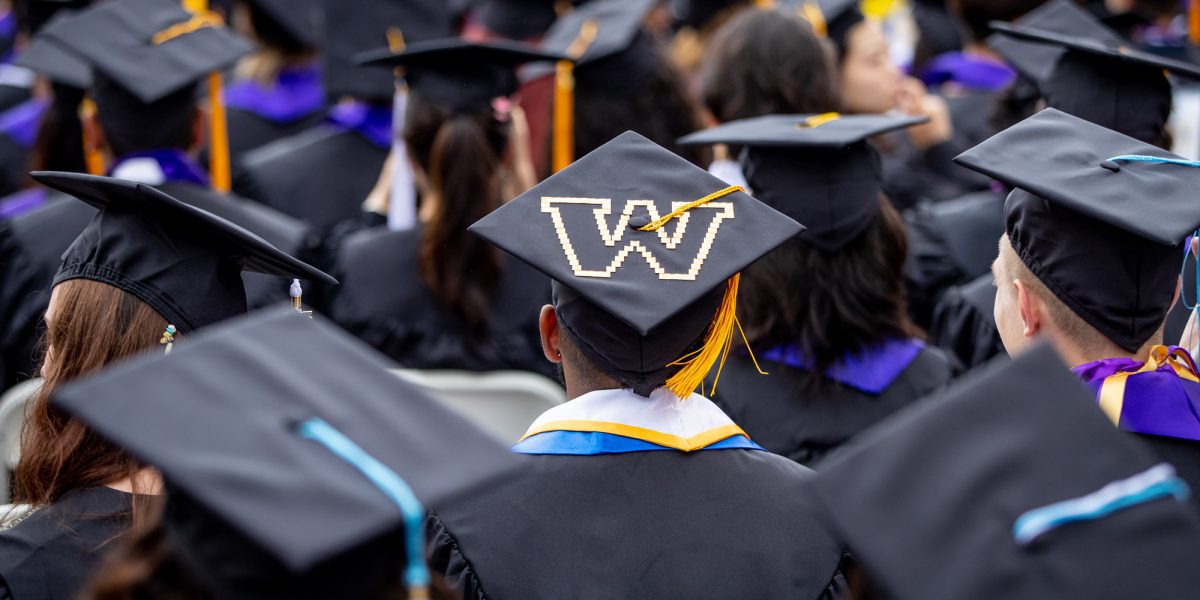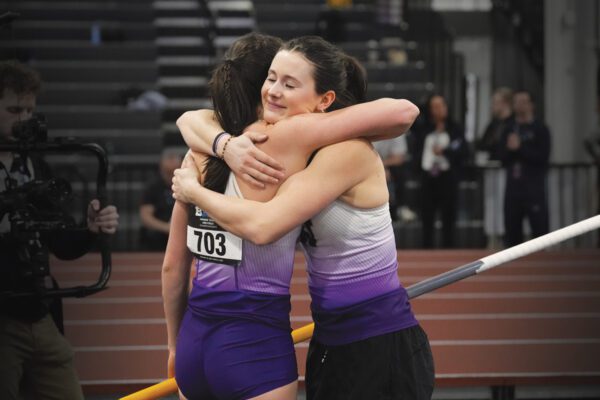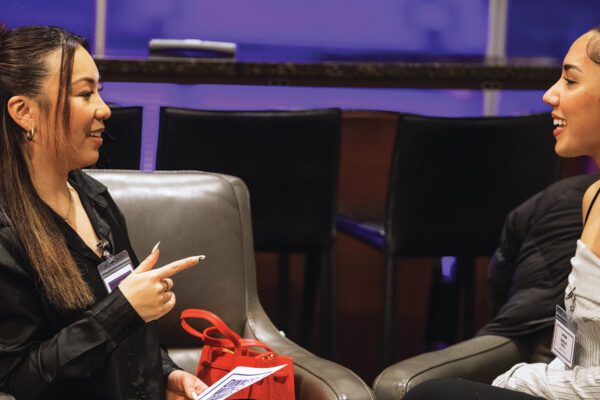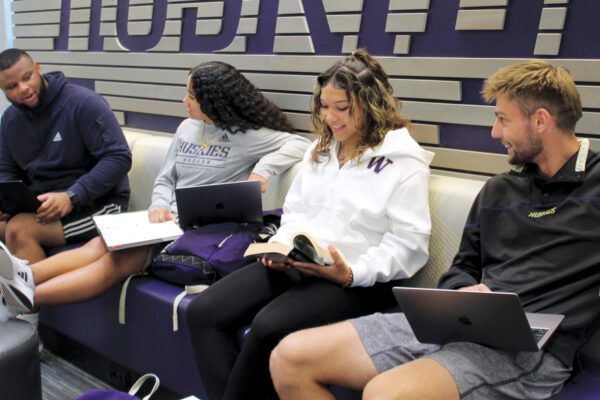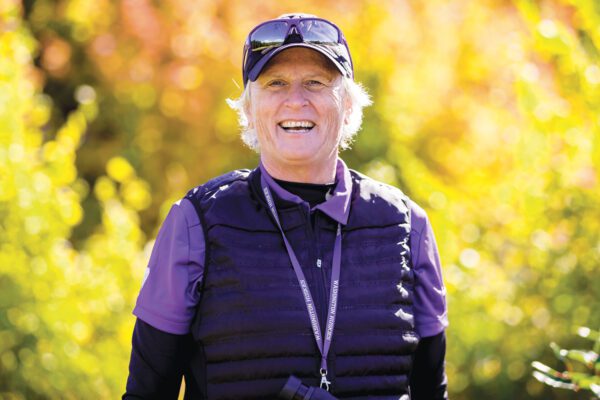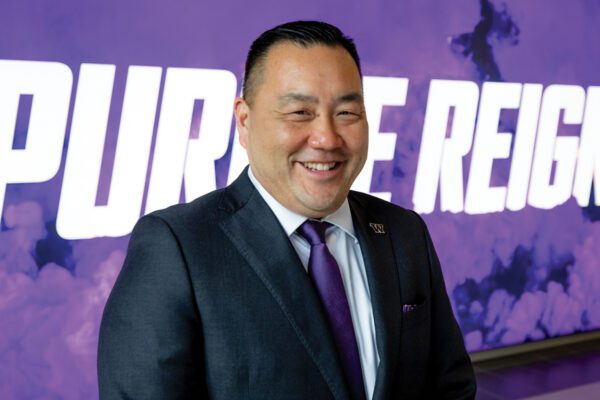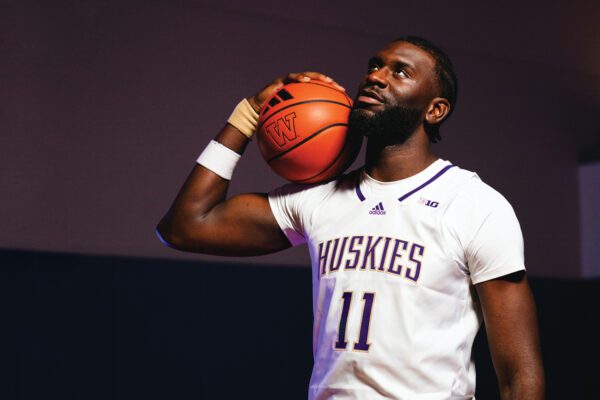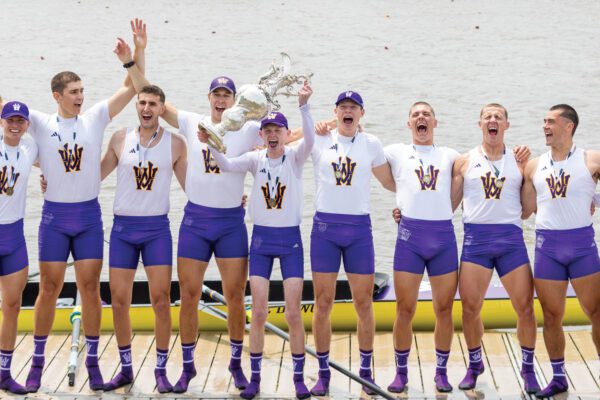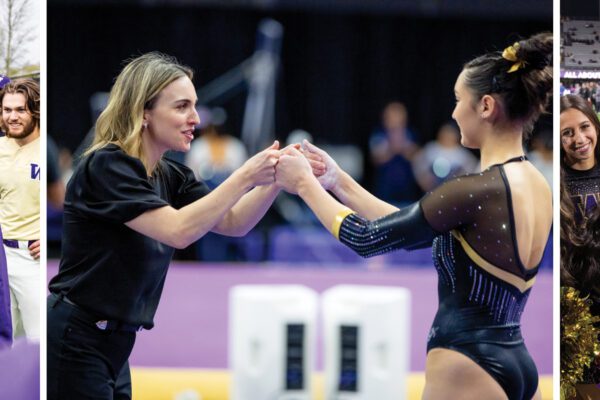What does it take for student-athletes to succeed in their sports and their studies? Countless hours of dedication to training, workouts, practice, competition, class time, studying, test-taking and more — along with the donor-funded resources to balance it all.
“There’s no such thing as an ‘easy major’ at the University of Washington,” states Kim Durand, who oversees academic services for student-athletes. “All our student-athletes pursue degrees at a world-class institution with renowned national rankings — and that’s never easy.”
The young men and women who aspire to master the most rigorous academics boost their skills and confidence thanks to the support they receive.
“A lot of student-athletes are attracted to the UW not only because of outstanding athletics but because of the reputation of our academics. We promise them and their families that we will help them pursue the majors they truly want,” Kim says. “We want every student-athlete to take their shot.”
Here are three who took that shot and hit the bullseye.
Athena Baches, Women’s Rowing
Physics and Astronomy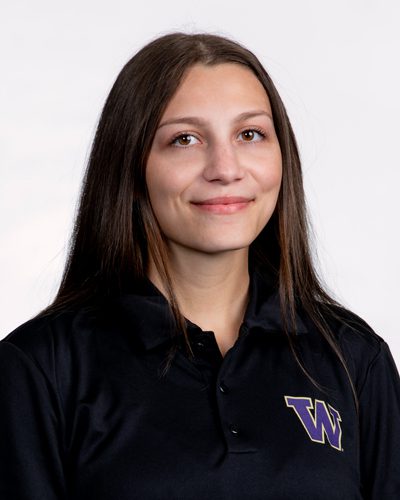
As he tucked her into bed each night, Athena Baches’ father would point to the images of the solar system on her bedroom ceiling as his little girl recited the names of each planet. It was good preparation for a future that seems as limitless as the skies.
When she graduates this spring with a double major in Physics and Astronomy (3.3 GPA), Athena will go on to work for Boeing’s Defense, Space & Security Division as an Optical Engineer focusing on electromagnetism. It’s a dream job for the Women’s Rowing coxswain, who fell in love with the sport as a Bellevue middle schooler.
She knew it would be challenging to balance such difficult studies while putting in 20+ hours a week with Rowing. In addition to on-water practices, coxswains participate in team workouts and meetings and help care for equipment and other boathouse tasks.
“Rowing and school are a lot to manage, so I’ve taken advantage of all the resources here and they’ve been tremendously helpful,” Athena notes.
Her freshman year, Athena’s academic advisor in Husky Athletics mapped out all four years of the classes she’d need to take. Her tutor was critical in helping her understand concepts in her fast-moving physics courses. And a sports psychologist “helped me figure out how to organize my life.”
Athena’s advisor also encouraged her to apply for a highly competitive NASA research internship, helping her craft her resume and application that resulted in two summers studying gravitational wave astrophysics. That internship led to other opportunities, such as working in the UW’s Space Propulsion and Advanced Concepts Engineering Lab.
A Boeing hiring event cemented her future plans. Fittingly, she was in the car with her dad when she received the job-offer email.
“Part of the reason I’ve been able to achieve all this is because of the supportive community here — my teammates, the coaches, advisors — everyone is always helping each other out,” she concludes.
Reagan Peterson, Beach Volleyball
Electrical and Computer Engineering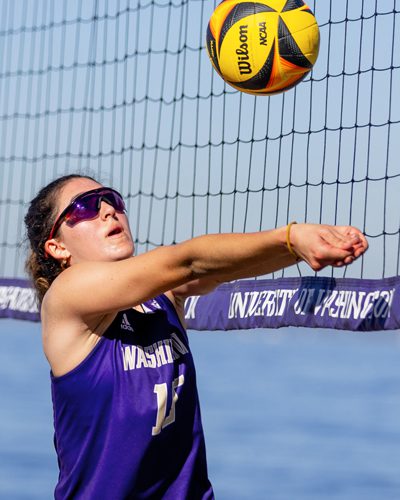
Reagan Peterson’s voice speeds up and her eyes brighten when she talks about science and technology.
“I remember when I was little and I’d watch medical dramas like Grey’s Anatomy and I’d wonder, why? Why does that happen? Why does that work?” recalls the sophomore Beach Volleyball player. “Science answers a lot of those questions and engineering makes those answers work.”
Her pursuit of a degree in Electrical and Computer Engineering includes a concentration in neuroscience and neurotechnology, mandating tough courses that demand tons of studying.
“After I chose that major, I thought, ‘Am I insane? Why did I do this?’” she laughs. “But the academic support here has been great. I’ve never been one to reach out for help. But as a first-year student, I needed it. My advisor helped me with tutoring, building schedules and staying motivated.”
“This quarter has been a challenge,” she adds. “I’ve never really struggled with academics before, but a computer science course got me sidetracked and I needed help to improve my grade.”
Reagan has also sought support for her lifelong social anxiety from the Athletic Department’s mental health practitioners.
“I’m really thankful for the support systems that donors help fund because without that, things would be so overwhelming,” says the 3.3 GPA student-athlete. “Instead, I’m able to have fun and continue to believe in myself, that I can really do all this.”
It’s no surprise that the inquisitive and dedicated Reagan finds important lessons in her sport as well as in her classes.
“Our coaches emphasize a growth mindset,” she explains. “Your skills are not set in stone. I’ve learned there are people all around to help you develop your skills. It’s up to you to put forth the effort and make changes. Find the joy in whatever you’re doing, and you can and will get better.”
Max Heid, Men’s Rowing
Master’s in Real Estate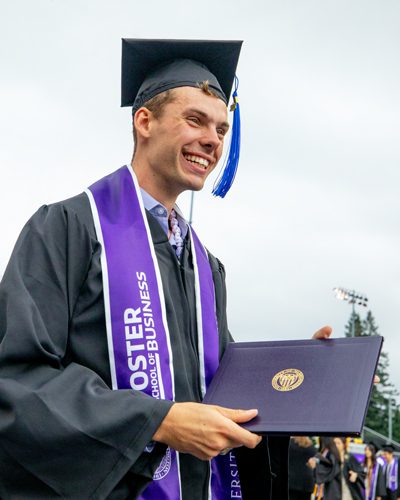
Max Heid’s philosophy of life is fueled by passion, grounded in values, and topped with a hefty heaping of gratitude.
“The values that rowing instills in you — the love for hard work, the grit, the drive to push yourself to the absolute limits — those are the same things I apply to my passion for academics and for business,” the fifth-year rower and nationally-recognized scholar-athlete declares.
From the time his stepfather encouraged him to step into a single scull when Max was 8 years old, he immediately took to the water. A stellar high school career at Seattle Prep led him to Husky Athletics, where he eagerly accessed tutoring and other academic support to earn entry into the Foster School of Business.
“My academic advisor was a leading force in helping me realize that goal. He helped me structure my classes around rowing and plan toward a future graduate degree,” says Max, who earned a Bachelor’s in Finance (3.6 GPA) in 2023 and will complete a Master’s in Real Estate (3.9) this spring.
Max hopes to pursue a career in wealth management “to help the next generation of earners and homeowners” and to one day help increase financial literacy among high schoolers.

